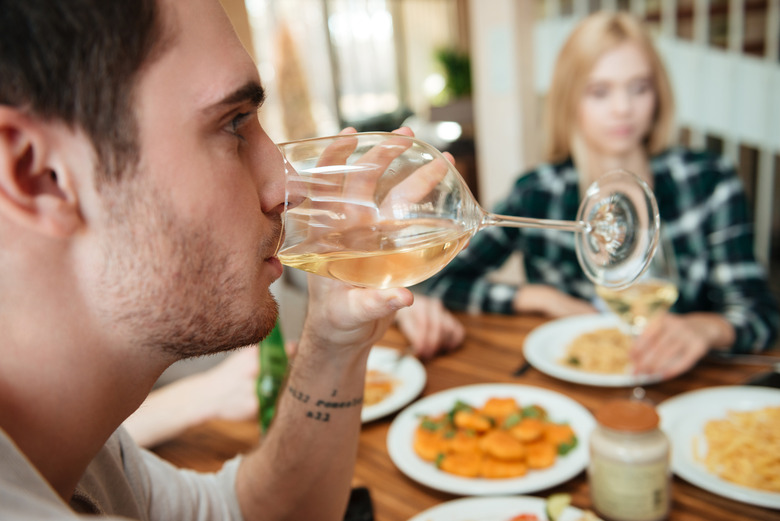Hide Your Wine: Studies Show Seeing Parents Drink Upsets Kids
When alcohol takes a seat at the dinner table, it does more than just relax your nerves after a long day. According to a recent study led by the Institute of Alcohol Studies (IAS), witnessing moderate drinking from parents can leave kids feeling anxious, embarrassed, and even less likely to get to bed on time.
The children queried for the study voiced the belief that alcohol is like "sugar for adults" and they believe parents drink to "solve their problems." This leads them to becoming less likely to view their parents as role models, and some — 12 percent of children involved in the study — go so far as to ask their parents to drink less.
Who knew a simple glass of wine could make such an impact? Apparently, parents don't. 29 percent of parents in the study claimed they believed getting drunk in front of their children to be acceptable and harmless, with only 16 percent feeling any sort of shame or guilt about their drinking. No parent in the study drank excessively, all consuming less than 14 standard alcohol units per week — the equivalent of less than a glass of wine a night.
"It is worrying that the majority of parents reported being tipsy or drunk in front of their child," said Katherine Brown, chief executive at the IAS. Even if parents don't get drunk, and simply sip a glass slowly, their kids notice — and according to this study, they still get upset.
Children are witnessing drinking more than ever before now that alcohol purchases for families have largely moved away from after-work happy hours and into grocery stores or convenience aisles. "This means children are more likely to be around alcohol and to witness drunkenness," said Alison Douglas, the chief executive of Alcohol Focus Scotland. "As well as the negative impacts on children's well-being, seeing how adults drink can have a big influence on our children's future drinking habits."
With alcoholism in the U.S. worse than it has ever been before, we can only hope that the next generation takes their aversion to alcohol and puts it towards moderating their own habits, rather than imitating their parents. And if it's hard for children to see here in the U.S. and in Europe, we can only imagine the anxiety levels of kids in the countries with the worst drinking problems.
